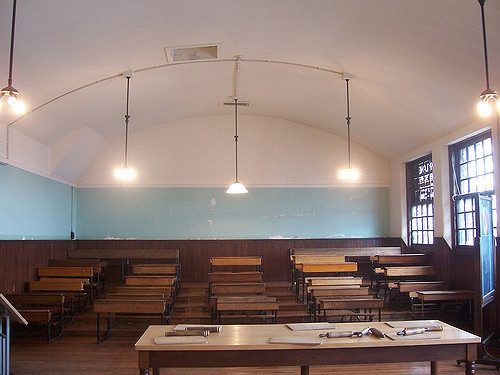
Just how much deference are downstate boards of education required to grant the decisions of hearing officers in connection with disciplinary proceedings for teachers? The Illinois Supreme Court agreed to clarify that issue, allowing a petition for leave to appeal in Beggs v. Board of Education of Murphysboro Community Unit School District No. 186, a decision from the Fifth District.
The plaintiff began employment as a full-time high school teacher for the District during the 1993-94 school year. Until 2011, she never received an unsatisfactory evaluation or one that rated her as needing improvement. However, following the death of her father in the summer of 2011, her mother’s health began to deteriorate. She missed a significant number of days in the 2011-12 school year helping care for her mother. The District, which was aware of her mother’s situation, became increasingly concerned about her late arrivals and failure to be prepared, finally issuing a letter of concern in January 2012. The plaintiff was suspended without pay between February 10 and 21, 2012, and the school board authorized a notice of remedial warning in late February 2012.
The plaintiff returned to work, but requested and received a leave of absence from February 27 to March 14, 2012 to continue caring for her mother. She missed additional days in late March, and finally, in late April, 2012, the Board adopted a resolution to authorize her dismissal. The plaintiff’s mother died shortly after the dismissal.
The plaintiff timely requested a hearing before a jointly selected impartial hearing officer. The hearing officer made findings of fact and recommended that the plaintiff be reinstated. The Board incorporated the hearing officer’s findings of fact and made supplemental findings, but ultimately concluding that the hearing officer’s recommendation that the teacher be rehired was contrary to the manifest weight of the evidence. On administrative review, the Circuit Court reversed the Board, holding that dismissal was unwarranted and ordering the plaintiff’s reinstatement with back wages and benefits.
The Fifth District affirmed, holding that the Board had given insufficient deference to the hearing officer’s findings of fact. The hearing officer had concluded that the performance issues displayed by plaintiff during her mother’s decline represented an anomaly in her teaching career, and that at a minimum, the plaintiff should be given an adequate opportunity to prove that that was the case.
Pursuant to Senate Bill 7, enacted in 2011, the Illinois General Assembly provided that for downstate teacher dismissals, although hearing officers should provide a report and recommendation, final decision-making authority would remain with local boards of education. Nevertheless, the Board was required to incorporate the hearing officer’s factual findings unless it determined that those findings were against the manifest weight of the evidence.
The Fifth District held that pursuant to the 2011 statute, the Legislature intended that although a Board can depart from the hearing officer’s recommendation, such a departure should be an unusual occurrence that would produce careful scrutiny from a reviewing court. The court concluded that “a certain level of deference” should be accorded to the hearing officer’s findings and recommendation.
The Court first found that the Board’s decision to reject the hearing officer’s conclusions regarding the plaintiff’s allegedly improper use of class time was error. The hearing officer’s factual findings were not unreasonable, according to the Court, and the hearing officer’s decision to reject his findings was not sufficiently supported by the amended and supplemental facts found by the Board. Nor were the hearing officer’s findings rejecting the charge of lateness unreasonable, the Court found. Finally, the Court found that the hearing officer’s rejection of the allegation that the plaintiff had failed to have lesson plans available in a timely manner was reasonable as well, and the Board’s rejection of that finding was therefore error. Ultimately, the Court found that none of the stated violations by the Board could pass muster on the required standard of review of a hearing officer’s determinations, and accordingly, the decision reversing the dismissal had to be affirmed.
We expect Beggs to be decided this winter.
Image courtesy of Flickr by Alex Liivet (no changes).
